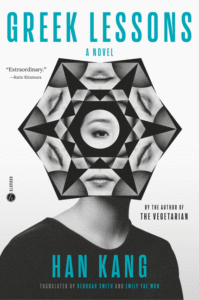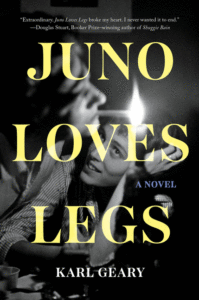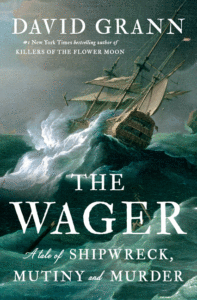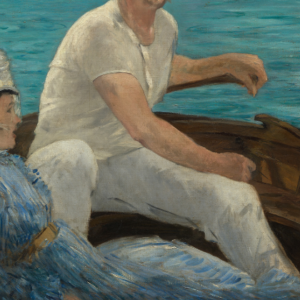What Should You Read Next? Here Are the Best Reviewed Books of the Week
Featuring new titles by David Grann, Han Kang, Ramona Ausubel, and More

David Grann’s The Wager, Han Kang’s Greek Lessons, and Ramona Ausubel’s The Last Animal all feature among the Best Reviewed Books of the Week.
Brought to you by Book Marks, Lit Hub’s “Rotten Tomatoes for books.”
*
1. Greek Lessons by Han Kang
(Hogarth)
8 Rave • 3 Positive • 2 Mixed
“From where I sit, Kang is one of the most unconventional, perceptive and truly innovative writers publishing today … Like all of her books, it’s preoccupied with deprivation and loss, and the effect both can have on the spirit … The novel’s true power lies not in its plot, but in its prose … Kang riddles the text with evocative descriptions that simultaneously illuminate and reflect … Compared to Kang’s other books, Greek Lessons is a less straightforward read. Its majesty may not become fully apparent on the first go … Her prose hits its mark.”
–Alexis Burling (The San Francisco Chronicle)

2. The Last Animal by Ramona Ausubel
(Riverhead)
7 Rave • 3 Positive 1 Mixed
Read an interview with Ramon Ausubel here
“From a taxonomic point of view, The Last Animal is a sweet, poignant descendant of Jurassic Park … Such a strange literary creation sounds unlikely to survive in the wild, but in Ausubel’s laboratory, it springs alive to explore questions that stump scientists and families, problems of the head and of the heart … The quirky comedy of this novel constantly pushes back against the story’s abiding gloom. The whole book is glazed with a thin layer of absurdity … The animal is a painful reminder of the loved one they can’t bring back. Every family, after all, goes extinct eventually. The paradox that this novel confronts with such tender sympathy and humor is how to love the time we have left.”
–Ron Charles (The Washington Post)
3. Juno Loves Legs by Karl Geary
(Catapult)
4 Rave • 1 Positive • 1 Mixed
Read an excerpt from Juno Loves Legs here
“The whip-smart exchanges, the bravado, the vulnerability, all are captured perfectly on the page … Geary writes fractured outsiders not just with skill but with humility. This book does not fetishise poverty … If the friendship between Juno and Legs is the beating heart of this novel, there is life and hope to be found in the walk-on characters, too … Geary finds beauty in the most unlikely places, and in an often brutal story, with more than its fair share of small tragedies, he offers balm along the way … There is always much talk in publishing of ‘the difficult second novel’ – the immense pressure on a writer to exceed or even just equal the achievement of a big and successful debut. Geary need have no concerns on that matter. Juno Loves Legs, in all its painful beauty, is a more than worthy successor.”
–Joanna Cannon (The Guardian)
**
1. The Wager: A Tale of Shipwreck, Mutiny and Murder by David Grann
(Doubleday)
9 Rave • 2 Positive
“[Grann] has found not just a good but a great story, fraught with duplicity, terror and occasional heroism … One trick Grann pulls off—again and again—is not showing his hand, and this review honors that accomplishment by not revealing the details of what happens next … Another Grann specialty is on full display—creating a cast of indelible characters from the dustiest of sources: 18th century ship’s logs, surgeons’ textbooks, court-martial proceedings. What a fascinating, conflicted lot they are … The other strength of the Wager’s story is that it just gets more and more improbable … The Wager will keep you in its grip to its head-scratching, improbable end.”
–Mary Ann Gwinn (The Los Angeles Times)
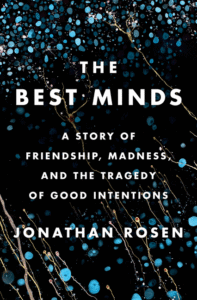
2. The Best Minds: A Story of Friendship, Madness, and the Tragedy of Good Intentions by Jonathan Rosen
(Penguin)
6 Rave • 1 Positive
“Remarkable … Rosen’s own memoir is the opposite of ruinous. It’s an inch-by-inch, pin-you-to-the-sofa reconstruction of his long friendship with Michael Laudor … Rosen cannot release Laudor, but he has rehabilitated and rehumanized him on the page while honoring his victim. The Best Minds is too a thoughtfully built, deeply sourced indictment of a society that prioritizes profit, quick fixes and happy endings over the long slog of care … Brave and nuanced.”
–Jennifer Szalai (The New York Times)
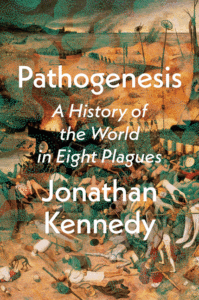
3. Pathogenesis: A History of the World in Eight Plagues by Jonathan Kennedy
(Crown)
3 Rave • 4 Positive • 1 Mixed
“Pathogenesis is superbly written. Kennedy seamlessly weaves together scientific and historical research … In any bold retelling of history viewed through a single lens, there is a danger of being blinded by one’s theory. This is common to the smart thinking genre: if a writer’s big idea is the peg, you’ll be astonished to discover how every world issue suddenly matches the same shaped hole. Kennedy doesn’t suffer this tunnel vision, although he does sometimes downplay the many factors—including chance—that might be at play in the events he describes.”
–David Robson (The Times)


